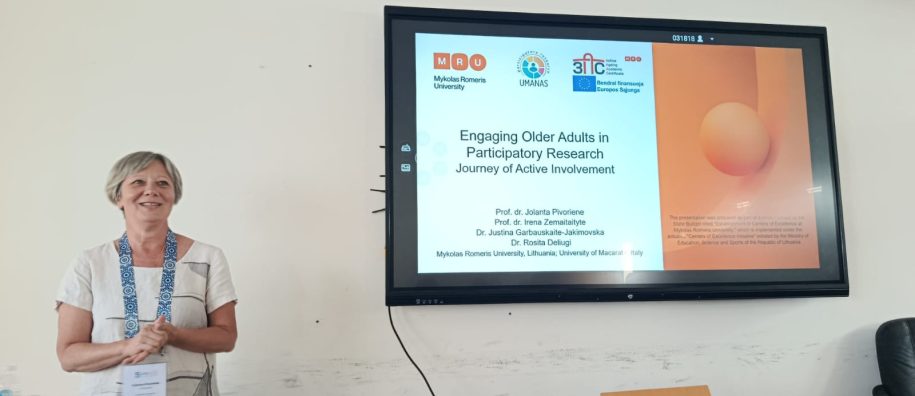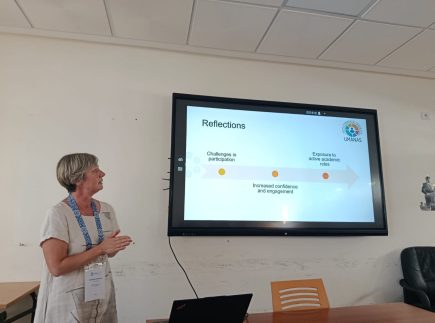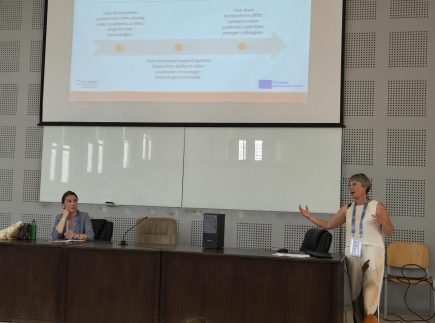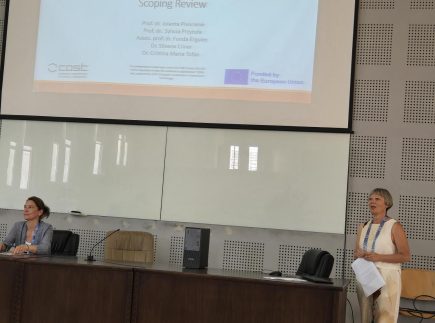
The International Sociological Association (ISA) forum "Knowing Justice in the Anthropocene", which took place from 6 to 11 July in the Moroccan capital Rabat, attracted hundreds of researchers from all over the world. Among them was Dr Jolanta Pivorienė, professor at the Institute of Educational Sciences and Social Work of Mykolas Romeris University (MRU), who participated in the event with two topical presentations that resonated strongly with the international community.
Participating in this forum is an important opportunity to present MRU's research on the international stage, exchange experiences with researchers from other countries and contribute to the general debate on digital change, ageing processes and social justice issues.
What experiences do older academics have in the digital world?
The first presentation by Prof. Dr Jolanta Pivorienė was given in the well-attended session "Weather ageing in the digital age?" (Dignified Aging in the Digital Age?) and focused on the rapidly growing but often ignored topic of technostress among older academics in universities.
The presentation "Technostress and Coping Strategies Among Older Academic Staff in Higher Education - Insights From a Scoping Review" highlighted the psychological and professional challenges that older academics face as technology changes the way they work, communicate and evaluate.
The study was presented as part of the international network DIGI-net (COST Action CA21107 "Work inequalities in later life redefined by digitalization") and was co-authored by researchers from Poland, Romania and Turkey: prof. dr. Sylwia Przytuła, dr. Silvana Crivoi, dr. Cristina Maria Tofan, and assoc. dr. Funda Ergulec.
The discussions highlighted that this is not just a local issue. Digital developments are affecting lecturers all over the world, which gave rise to the idea of initiating a comparative study in universities in different countries.
Participants in research are partners, not objects
The second presentation highlighted the human voice in research - especially that of the elderly, who are often left out of the decisions of the scientific world. The presentation "Engaging Older Adults in Participatory Research: A Journey of ACTIVE Involvement" presented real ways in which these people can not only participate but also make a difference in the research process itself.
The thesis was prepared in collaboration with Prof. Dr. Irena Žemaitaityte, Dr. Justina Garbauskaite-Jakimovska (MRU) and Dr. Rosita Deliugi from Italy (University of Macerata), and reflected the idea of the UMANAS project - not to see ageing as a passive process, but rather as an opportunity to engage, to act, and to innovate in a socially responsible and social way.
MRU research on the global map
Participation in this prestigious forum is not only an honour, but also a responsibility - to represent Lithuanian science in the context of the most relevant topics. The participation of MRU researchers in the DIGI-net and UMANAS projects shows that our university is actively contributing to international research on social justice, digital transformation, human dignity and active ageing.
These topics are not the future. They are about the changes that are happening now, and they are about people.
More information about the Forum.
More about DIGI-net.


